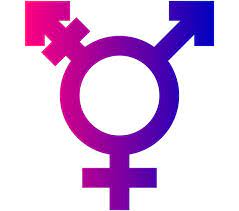Estrogen is often in the spotlight when discussing women’s health, but did you know that this powerful hormone also plays a significant role in mood regulation? Many women experience mood swings, anxiety, or depressive symptoms linked to fluctuations in estrogen levels, especially during critical life stages like puberty, menstruation, pregnancy, and menopause. In this article, we’ll dive into how estrogen influences mood and explore practical ways to manage its effects on emotional well-being.
What’s the Connection Between Estrogen and Mood Swings?
Estrogen is not just a reproductive hormone; it also acts on many parts of the brain involved in mood regulation. Changes in estrogen levels can lead to shifts in neurotransmitter systems, particularly serotonin and dopamine, which are crucial for mood stability. When estrogen levels drop, such as during the menstrual cycle or menopause, many individuals report experiencing emotional turbulence, including irritability, anxiety, and sadness. Sissification Person Meaning
These mood swings can be frustrating and perplexing. You might find yourself feeling blissfully happy one moment and tearful the next, and it can be difficult to pinpoint why. Understanding that these fluctuations are often linked to hormonal changes can help normalize the experience and encourage individuals to seek effective management strategies.
How Estrogen Levels Fluctuate Throughout Your Life
From the onset of puberty to the later stages of life, estrogen levels experience significant fluctuations. In young women, estrogen levels rise during the menstrual cycle, peaking just before ovulation. This fluctuation can lead to premenstrual syndrome (PMS) and mood swings that many women experience monthly.
As women approach menopause, estrogen levels decline, leading to a host of symptoms, including mood changes. This transition, known as perimenopause, can span several years and is often marked by irregular periods, hot flashes, and increased emotional sensitivity. Understanding these life stages helps create a clearer picture of how estrogen impacts mood across different ages.
The Science of Estrogen: What You Need to Know
Estrogen is primarily produced in the ovaries and plays a vital role not only in reproductive health but also in other bodily functions. It influences various systems in the body, including the cardiovascular system and bone health. Importantly, estrogen acts on the central nervous system, where it can modulate mood and emotional responses.
Recent research has shown that estrogen receptors are present in several brain regions, including the amygdala and hippocampus, which are involved in emotion regulation and memory. This connection illustrates why changes in estrogen levels can significantly affect mood and behavior, leading to various emotional experiences throughout the menstrual cycle and life stages.
Estrogen and Brain Chemistry: The Mood Link Explained
Understanding the interplay between estrogen and brain chemistry is crucial for grasping how mood disorders can arise. Estrogen influences the production and uptake of key neurotransmitters like serotonin and norepinephrine, which directly affect mood and emotional well-being. When estrogen levels fluctuate, it can disrupt the balance of these neurotransmitters, leading to heightened feelings of anxiety or depression.
Moreover, estrogen has neuroprotective properties, promoting the growth of neurons and enhancing synaptic plasticity. When estrogen levels are low, this protective effect diminishes, making individuals more susceptible to mood disorders. This biological connection provides a solid foundation for why many women report mood disturbances during times of hormonal fluctuation.
Common Mood Disorders Linked to Estrogen Changes
Several mood disorders have been linked to changes in estrogen levels. Premenstrual Dysphoric Disorder (PMDD) is a severe form of PMS associated with significant mood disturbances, including anxiety and depression, occurring in the luteal phase of the menstrual cycle. Similarly, postpartum depression can also be influenced by the dramatic drop in estrogen that occurs after childbirth.
Menopausal women often experience increased rates of depressive symptoms and anxiety disorders, attributed to declining estrogen levels. Understanding these connections can help individuals recognize patterns in their mood and seek targeted approaches to alleviate symptoms during these susceptible periods.
How to Manage Mood Swings Related to Estrogen
Managing mood swings related to estrogen fluctuations can involve several lifestyle adjustments. Regular physical activity is one of the most effective ways to promote hormonal balance. Exercise increases serotonin levels and can enhance overall mood. Incorporating mindfulness practices like yoga and meditation can also help manage stress and improve emotional regulation.
Additionally, maintaining a consistent sleep schedule and practicing good sleep hygiene can significantly impact mood stability. Poor sleep can exacerbate mood swings, especially during hormonal changes. If lifestyle adjustments aren’t enough, consulting with a healthcare provider about potential hormonal therapies could also be beneficial.
Foods and Lifestyle Choices to Support Hormonal Balance
Nutrition plays a key role in hormonal health. Eating a well-balanced diet rich in whole foods, healthy fats, and lean proteins can support hormonal balance. Foods high in phytoestrogens, such as soy products, flaxseeds, and legumes, may help modulate estrogen levels naturally. Incorporating omega-3 fatty acids, found in fatty fish and walnuts, can also promote brain health and improve mood.
Hydration is often overlooked but is essential in maintaining overall well-being. Staying hydrated can help combat feelings of fatigue and irritability. Additionally, reducing caffeine and sugar intake can stabilize energy levels and mood, reducing the likelihood of experiencing severe mood swings.
When to Seek Help: Recognizing Serious Mood Issues
While occasional mood swings can be a normal part of life, it’s crucial to recognize when these changes may indicate a more serious issue. If mood disturbances interfere with daily life, relationships, or overall quality of life, it’s time to seek professional help. A mental health professional can help diagnose underlying mood disorders and recommend appropriate treatment options.
It’s essential for individuals to trust their instincts about their mental health. If feelings of sadness, anxiety, or irritability persist or worsen, reaching out for support is a brave and necessary step. Remember, you don’t have to navigate this journey alone.
Understanding the connection between estrogen and mood can empower individuals to take charge of their emotional health. By recognizing how hormonal changes impact mood and implementing lifestyle adjustments, many can manage their mood swings more effectively. If you ever feel overwhelmed, don’t hesitate to seek help. Your mental well-being is just as important as any other aspect of your health, and finding the support you need can make all the difference.


